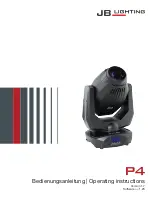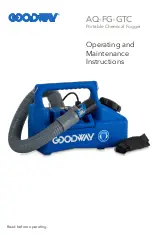
Q-Sense Technical Reference Manual
Proprietary
28 of 188
Term
Description
Baseline
Temperature
The initial temperature the stimulus starts from
Destination
Temperature
The final temperature the stimulus ends with.
Duration Time
Indicates the time the probe will remain at the destination
Trial
Represents one stimulus
Sequence
A set of trials with the same specifications
Test
A set of sequences.
Event
A specific occurrence during a test such as the onset of a stimulus,
reaching a specific temperature and etc.
LUT
A Look Up Table (LUT) maps one set of values to another. A LUT is used
to map between the readings from the temperature sensors to the
actual temperature it represents.
Firmware
The program embedded on the internal processor of the system
2.5
System Status
Online: This is the Q-SENSE system full operating mode and indicates full
communication between MEDOC Main Station and Q-Sense System. While on-line the
Q-Sense system can operate in several different states as listed in the following
section.
Demo Mode: This is a demo mode of operation. There is no communication between
the software and the Q-SENSE system. All tests performed while working in this mode
are simulated. No actual thermal stimulation is performed and there is no access to the
Q-SENSE hardware settings. The Simulator is useful for demonstration, training and
for protocol design without executing actual thermal stimulation. It is recommended to
turn off the Q-SENSE system while working in Simulator mode.
2.6
System States
System State is the active state in which the system is currently operating. System states
refer to the online status only.
The Q-SENSE active states are as follows:
Rest Mode: The Q-SENSE system is active and ready to perform a test. The
temperature is maintained at the specified Rest Mode temperature. In this mode,
patient, program and result management are possible.
Test Run: The Q-SENSE system is running a (predefined) test. The Thermode is
active, and the temperature varies according to the active program.
Safe Mode: No test can be performed and safety mechanisms are activated. The
system must perform a Self-Test before resuming normal operation.
Engineering: During Thermode Calibration the system state is set to Engineering. In
this state safety limitations are lowered and it is not allowed to run any actual tests.
Test Initiation: The system raises the temperature from Rest Mode temperature to
Baseline level. A stabilization test is then performed, to make sure that the
temperature is maintained according to the program requirements.
Self-Test: The system performs a Self-Test in order to check whether the connected
Thermode is functioning according to system requirements.
Summary of Contents for TSA 2001
Page 1: ...Proprietary 1 of 188 Small Fiber Test Technical Reference Manual ...
Page 99: ...Q Sense Technical Reference Manual Proprietary 99 of 188 Analysis Report Examples ...
Page 109: ...Q Sense Technical Reference Manual Proprietary 109 of 188 ...
Page 181: ...Q Sense Technical Reference Manual Proprietary 181 of 188 Figure 114 Pain Rating Limits ...
















































